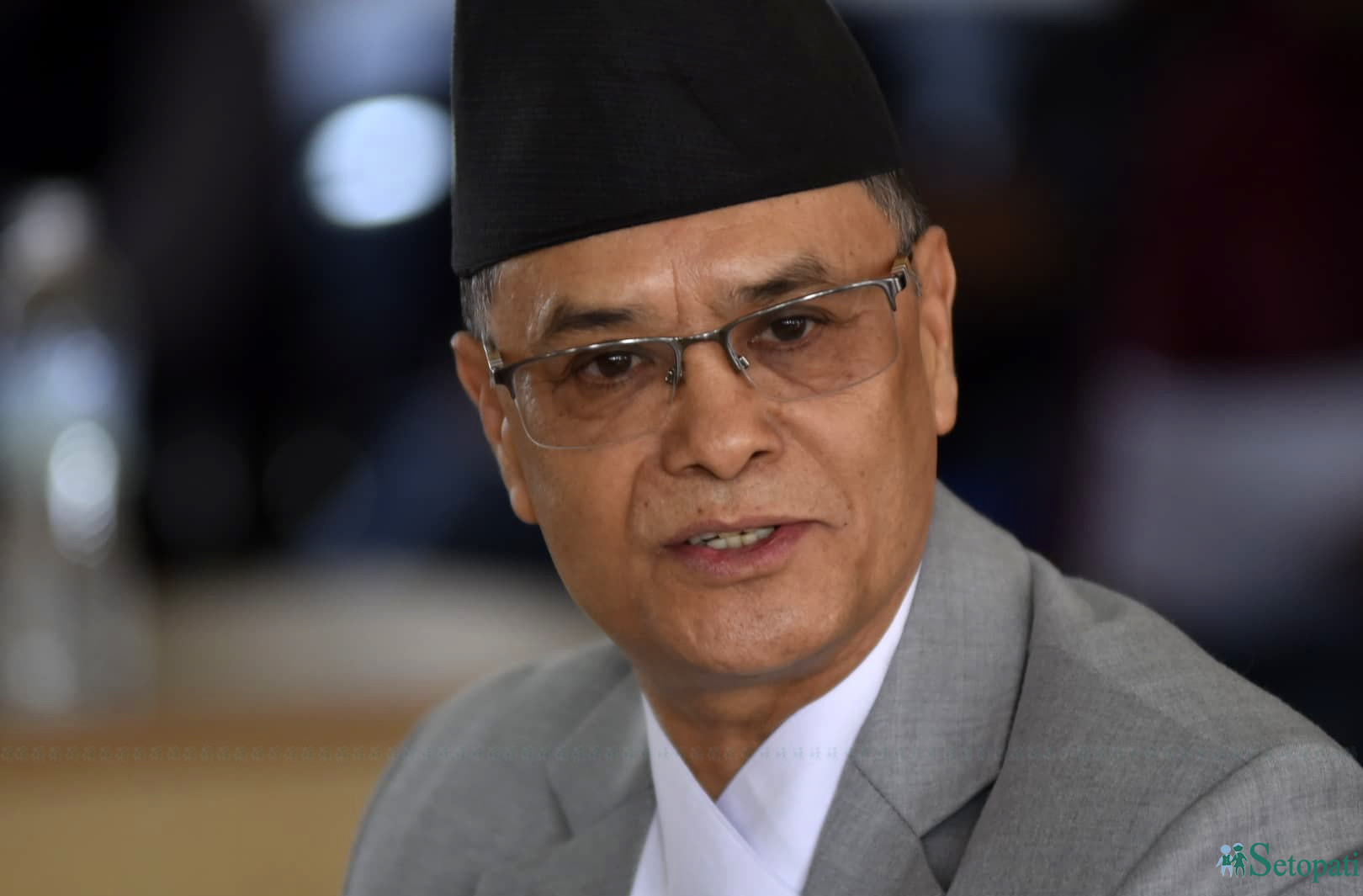The Supreme Court (SC) could not decide whether to send the writ petitions filed against House dissolution by President Bidya Devi Bhandari on recommendation of the Cabinet to the extended full bench from the constitutional bench or not.
The five-strong constitutional bench headed by Chief Justice (CJ) Cholendra Shumsher Rana heard arguments about whether to send the case to the extended full bench from both sides on Wednesday but did not take a call on it and decided to continue the hearing on Friday.
Senior advocate Raman Shrestha arguing for the petitioners said the case should be sent to the extended full bench while lawyers pleading the case of government, that earlier on the day lodged an application saying it should not be taken to the extended full bench, argued against transfer of the case.
CJ Rana earlier on Wednesday included Justice Sapana Pradhan Malla in the the constitutional bench in place of Justice Hari Krishna Karki who recused himself from the case
Justice Karki, who was attorney general when KP Sharma Oli first became prime minister five years ago, recused himself from the case last Wednesday after advocates raised questions about his presence in the bench.
Chief Justice (CJ) Cholendra Shumsher Rana on December 25 had constituted the constitutional bench comprising himself and Justices Hari Krishna Karki, Bishwambhar Prasad Shrestha, Anil Kumar Sinha and Tej Bahadur KC. The same bench started continuous hearing about the case of House dissolution from last Wednesday.
CJ Rana has replaced Karki with Malla who was elected to the First Constituent Assembly by the then CPN-UML before she was appointed to the SC.
Eleven of the 13 petitioners in the case last Wednesday had also filed a supplementary application demanding that the case be heard by an extended full bench as the SC had done in previous cases related to House dissolution in the past.
The bench after the last hearing on December 25 had ordered the government and other defendants to submit written justification via the Office of the Attorney General before January 3.
The defendants including Prime Minister KP Sharma Oli have already submitted written response to the show-cause order issued by the constitutional bench hearing the 13 writ petitions against House dissolution by President Bidya Devi Bhandari on recommendation of PM Oli on December 20. Each defendant has sent separate replies to all 13 petitioners through the Office of the Attorney General.
PM Oli has said he dissolved the House as a few leaders tried to undermine the government. Claiming that there was no chance of formation of another government, he has argued that House dissolution is a political issue and claimed that the court in the past also did not enter into political issues.
The response sent by the President's Office has also claimed that the House has been dissolved in accordance to the Constitution, precedents of the past and international practices.
Speaker Agni Sapkota, on the other hand, has claimed in his reply that there was option of forming another government and pointed there is a clear provision that prohibits House dissolution until there is chance of forming government. He has stated that the House dissolution is against the spirit and values of the Constitution and called it an intervention on the institution of people's elected representatives.
Similarly, recommendation for HoR dissolution and original copy of decision on it were also sought from the President's Office, and Office of the Prime Minister and Council of Ministers by the SC on December 25. The original documents on registration of no-confidence motion were sought from the federal parliament secretariat.
The documents about name and number of lawmakers in the House just before its dissolution were also sought from the federal parliament secretariat. The SC had also asked for three senior advocates of Nepal Bar Association and two from the SC Bar in amicus curiae which has already been provided to assist the Apex Court.
A total of 13 writ petitions were filed against HoR dissolution by President Bidya Devi Bhandari on recommendation of Prime Minister KP Sharma Oli on December 20.
Advocate Prabesh KC had filed a writ petition against HoR dissolution on behalf of members of the dissolved House Dev Prasad Gurung, Krishna Bhakta Pokharel, Sashi Shrestha and Ram Kumari Jhankri. In the petition, he had demanded the recommendation be scrapped, arguing it violated House's right to continue for five years.
The Constitution does not have clear provision about House dissolution. Article 85(1) of the Constitution states 'Except when dissolved earlier, the term of House of Representatives shall be five years.'
Some constitutional experts argue that the Constitution envisions House dissolution due to the use of term 'dissolved earlier'. But others argue that the provision has been kept for the situation of inability to choose the PM.
Article 76(7) states 'If the Prime Minister appointed according to clause (5) fails to get the vote of confidence or if any member fails to be appointed as Prime Minister, the President shall, on the recommendation of Prime Minister, dissolve the House of Representatives and fix a date to conduct another election within six months.'

